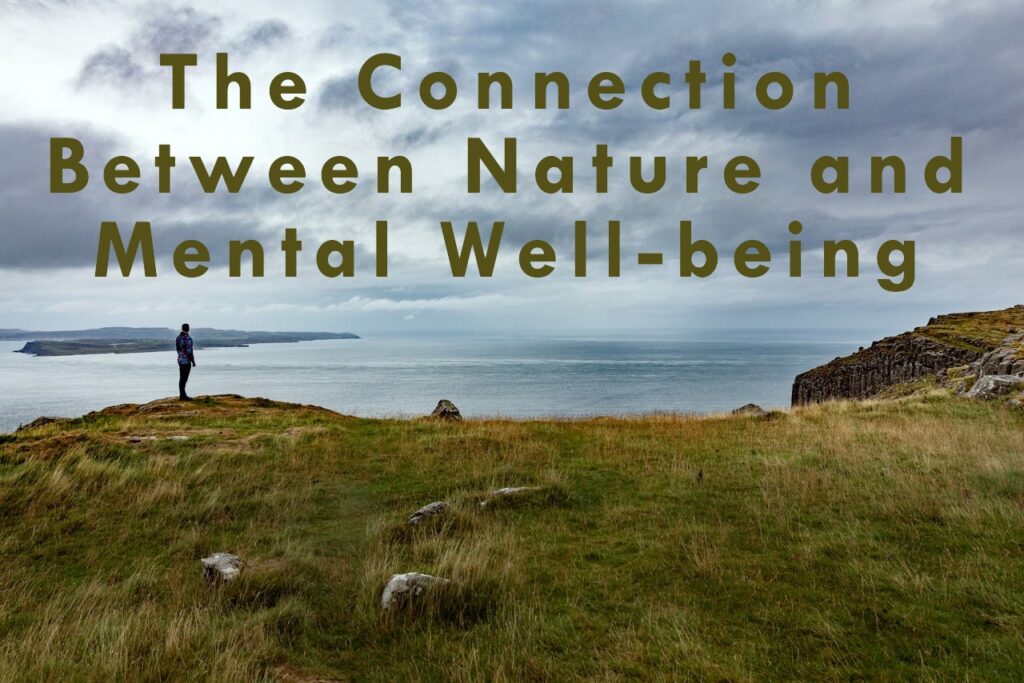
In our fast-paced, technology-driven world, mental health challenges such as stress, anxiety, and depression have become increasingly common. While many seek solutions through therapy, medication, or lifestyle changes, one powerful yet often overlooked remedy is nature. From lush forests to tranquil beaches, spending time in nature has been scientifically proven to enhance mental well-being. In this article, we will explore the profound connection between nature and mental health, backed by research, expert insights, and practical strategies to integrate nature into daily life.
How Nature Affects the Brain and Emotions
1. Reducing Stress and Cortisol Levels
Stress is a leading cause of mental health struggles. Studies show that exposure to natural environments lowers cortisol, the body’s primary stress hormone. Whether it’s a walk in the park, hiking in the mountains, or simply listening to birds chirping, nature has a calming effect that counteracts daily stressors.
2. Enhancing Mood and Happiness
Nature exposure triggers the release of serotonin and endorphins, the brain’s feel-good chemicals. Research published in the journal Environmental Science & Technology found that individuals who spent just five minutes in a green space reported improved mood and self-esteem. The vibrant colors, fresh air, and natural sounds contribute to a sense of joy and relaxation.
3. Boosting Cognitive Function and Creativity
Time spent in nature has been linked to improved concentration, problem-solving skills, and creative thinking. A study conducted by the University of Kansas found that individuals who spent four days in nature without electronic devices performed 50% better on creative problem-solving tasks. Nature’s ability to refresh the mind allows for better cognitive performance and innovative thinking.
The Psychological Benefits of Different Natural Environments
1. Forests: The Healing Power of Trees
The Japanese practice of Shinrin-yoku, or “forest bathing,” has gained global recognition for its therapeutic effects. Immersing oneself in a forest has been proven to lower blood pressure, improve immune function, and enhance mental clarity. The scent of trees and the sound of rustling leaves provide a sensory experience that promotes deep relaxation.
2. Water Bodies: The Soothing Effect of the Ocean and Rivers
Being near water whether it’s the ocean, a river, or a lake—has a meditative effect on the brain. The rhythmic sound of waves and the reflective nature of water help reduce anxiety and promote mindfulness. Marine biologist Wallace J. Nichols coined the term “Blue Mind” to describe the mental clarity and peace that water brings.
3. Mountains: A Sense of Perspective and Adventure
Mountain landscapes provide a sense of awe and inspiration. The fresh mountain air, panoramic views, and physical challenge of hiking contribute to increased energy levels and a greater appreciation for the present moment. Mountains symbolize resilience and can help individuals overcome mental obstacles.
4. Urban Green Spaces: Nature in the City
Even in busy cities, access to parks, gardens, and green rooftops can improve mental well-being. Studies have shown that urban green spaces reduce feelings of loneliness, improve focus, and encourage social interactions. A simple lunch break in a park can significantly lower stress and boost productivity.
Nature as a Natural Remedy for Anxiety and Depression
1. Ecotherapy: Nature-Based Mental Health Treatment
Ecotherapy, also known as nature therapy, is a growing field in mental health treatment. It involves structured activities such as gardening, animal-assisted therapy, and outdoor meditation. Research indicates that ecotherapy can reduce symptoms of depression and anxiety, offering a holistic alternative to traditional treatments.
2. Grounding: Connecting with the Earth’s Energy
Grounding, or “earthing,” is the practice of walking barefoot on natural surfaces like grass, sand, or soil. Proponents of grounding believe that it helps regulate the body’s electrical charge, reducing inflammation and stress. While more research is needed, many individuals report feeling more balanced and relaxed after grounding sessions.
3. Sunlight and Vitamin D: A Natural Antidepressant
Sunlight is essential for the production of vitamin D, which plays a crucial role in mood regulation. Low levels of vitamin D have been linked to depression and seasonal affective disorder (SAD). Spending time outdoors, especially in the morning, can help regulate circadian rhythms and improve sleep quality.
How to Incorporate Nature into Your Daily Life?
1. Take Daily Walks in Green Spaces
Even a short walk in a local park can have significant benefits. Make it a habit to spend at least 20-30 minutes outdoors each day.
2. Practice Outdoor Mindfulness and Meditation
Engage in mindful activities such as deep breathing, yoga, or meditation in a natural setting. Focus on the sights, sounds, and sensations around you.
3. Bring Nature Indoors
If outdoor access is limited, introduce plants, nature sounds, or landscape paintings into your home or workspace. Indoor greenery has been shown to reduce stress and increase productivity.
4. Plan Nature Getaways
Whenever possible, take weekend trips to the mountains, forests, or beaches. Disconnect from technology and immerse yourself fully in the natural world.
5. Volunteer for Environmental Conservation
Participating in tree planting, beach clean-ups, or community gardening not only benefits the environment but also fosters a sense of purpose and well-being.
Conclusion
Nature is a powerful, accessible, and cost-free resource for improving mental well-being. Whether it’s a walk in the park, a weekend hike, or simply sitting by the ocean, the connection between nature and mental health is undeniable. By embracing nature in our daily lives, we can experience reduced stress, enhanced mood, and a greater sense of overall happiness. So, take a deep breath, step outside, and let nature work its magic on your mind and soul.
